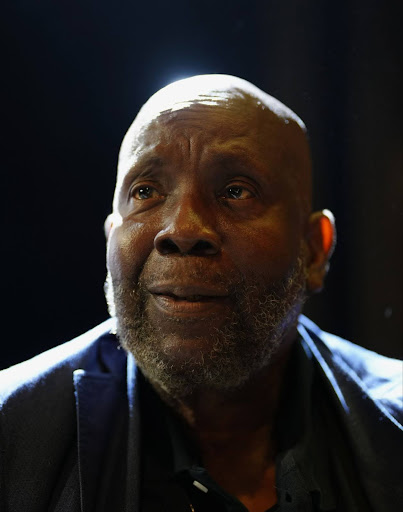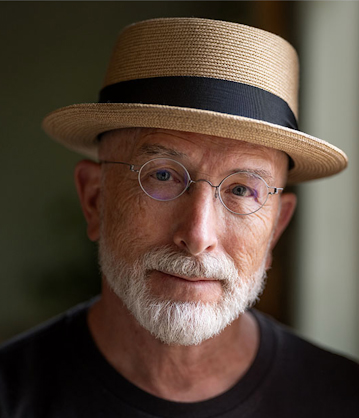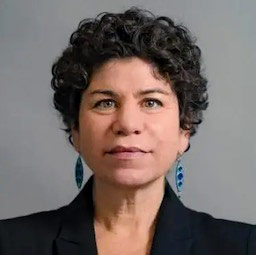Festival Speaker Series
Shuttered Realities
Narratives of Culture and the Climate Crisis
Wednesday, April 17, 1:30 pm ET via Zoom

Photo by Jamey Stillings. El Romero photovoltaic plant, Atacama Desert, Chile, 14 July 2017, #19207
Online presentation and discussion with Katie Orlinsky, Eli Reed, and Jamey Stillings. Moderated by Antonia Juhasz.
Join us for this informative and exciting virtual panel on visual stories of the climate crisis during the SDN 2024 Visual Storytelling Festival. Three world-class documentary photographers and a renowned writer and thought leader will discuss their unique perspectives on the intersection of climate change issues with documentary stories from the Arctic North to the desert South. The panel will also cover how these photographers approach visual stories exploring the social and cultural impacts of climate change, as well as individual and collective actions to address its far-reaching effects.
Katie Orlinsky
 Photographer Katie Orlinsky has spent over a decade covering news stories and feature assignments around the world. Her work explores a variety of subjects from conflict and social issues to unique subcultures, wildlife, and sports, and has been featured in National Geographic magazine, the New York Times, the New Yorker, and Smithsonian. Katie has won numerous awards over the course of her career from institutions such as the Art Director’s Club, PDN30, Visa Pour L’image, and Pictures of the Year International, and was named the 2016 Paris Match Female Photojournalist of the Year.
Photographer Katie Orlinsky has spent over a decade covering news stories and feature assignments around the world. Her work explores a variety of subjects from conflict and social issues to unique subcultures, wildlife, and sports, and has been featured in National Geographic magazine, the New York Times, the New Yorker, and Smithsonian. Katie has won numerous awards over the course of her career from institutions such as the Art Director’s Club, PDN30, Visa Pour L’image, and Pictures of the Year International, and was named the 2016 Paris Match Female Photojournalist of the Year.
Since 2014, she has been working on a long-term photographic project exploring how climate change is challenging communities across Alaska, and transforming the relationship between people, animals, and the land. Based in Alaska for part of the year, Katie continues to work in the region and is teaching photojournalism at University of Alaska Fairbanks in 2018. She has received grants from The National Geographic Society, The Magnum Foundation, Getty Images, The International Women’s Media Foundation, and the Pulitzer Center on Crisis Reporting.
Eli Reed
 For half a century, photojournalist Eli Reed's photography has captured the face of racism and documented human suffering in conflicts around the world. He has photographed deprivation from Beirut to Central America, and filmed the Lost Boys of Sudan, young men Reed described as "living through life-threatening hell." In 1986, his images chronicled the coup against Haitian President "Baby Doc" Duvalier; in 1989, he captured the U.S. military action that led to the downfall of Panamanian leader Manuel Noriega; and in 1992, he documented political upheaval in Kinshasa, Zaire. In the United States, his eyes have been focused on the evils of racism, his photographs exposing truth in ways that words cannot always express.
For half a century, photojournalist Eli Reed's photography has captured the face of racism and documented human suffering in conflicts around the world. He has photographed deprivation from Beirut to Central America, and filmed the Lost Boys of Sudan, young men Reed described as "living through life-threatening hell." In 1986, his images chronicled the coup against Haitian President "Baby Doc" Duvalier; in 1989, he captured the U.S. military action that led to the downfall of Panamanian leader Manuel Noriega; and in 1992, he documented political upheaval in Kinshasa, Zaire. In the United States, his eyes have been focused on the evils of racism, his photographs exposing truth in ways that words cannot always express.
Over the past two years while on assignment for Human Rights Watch, Eli has been documenting human suffering in Louisiana, an area that has come to be known as “Cancer Alley”. We’re Dying Here: The Fight for Life in Louisiana Fossil Fuel Sacrifice Zone shares the lives of people on the front lines of extreme pollution facing high rates of cancer, respiratory, and reproductive harms tied to the fossil fuel and petrochemical industry.
His long career of documentary work culminated in his much-acclaimed photographic record of the aftermath of George Floyd's 2020 murder in Minneapolis and Floyd's funeral in Houston, Texas. Reed was a 1983 Nieman Fellow at Harvard University, became a full member of Magnum Photos in 1988, and retired in 2021 after teaching for 17 years as a clinical professor at The University of Texas at Austin. He has received many awards and achievements including most recently, the National Press Photographers Association Joseph A. Sprague Memorial Award (2020), Gordon Parks Choice of Weapons Award (2021), and the I.F. Stone Medal for Journalistic Independence (2021).
Jamey Stillings
 Jamey Stillings' multi-decade career spans documentary, fine art, and commissioned work. Since 2010, he has focused on renewable energy through an extended aerial photography project, Changing Perspectives: Renewable Energy & the Shifting Human Landscape. Stillings has photographed extensively over the United States, Japan, Uruguay, and Chile from helicopters and light airplanes. He recently published ATACAMA: Renewable Energy and Mining in the High Desert of Chile (Steidl, 2023)
Jamey Stillings' multi-decade career spans documentary, fine art, and commissioned work. Since 2010, he has focused on renewable energy through an extended aerial photography project, Changing Perspectives: Renewable Energy & the Shifting Human Landscape. Stillings has photographed extensively over the United States, Japan, Uruguay, and Chile from helicopters and light airplanes. He recently published ATACAMA: Renewable Energy and Mining in the High Desert of Chile (Steidl, 2023)
Stillings presents globally at photo festivals, universities, TED events, and professional conferences. His work is exhibited and published widely in Asia, Australia, Europe, and North and South America. Recent publications include The New York Times Magazine, National Geographic, Der Spiegel, Le Monde, Newsweek Japan, WIRED Italia, and Photoworld China. His award-winning book, The Evolution of Ivanpah Solar (Steidl, 2015), documents the Ivanpah Solar concentrated solar power plant in California’s Mojave Desert. Stillings' photographs are in private and public collections, including the United States Library of Congress, Museum of Fine Arts - Houston, Los Angeles County Museum of Art, and Nevada Museum of Art.
Antonia Juhasz, Moderator
 Antonia Juhasz is a leading energy and climate author and investigative journalist. She is the Senior Researcher on Fossil Fuels in the Environment and Human Rights Division of Human Rights Watch. She was the lead researcher and author of the Human Rights Watch investigation, "We're Dying Here": the Fight for Life Inside a Louisiana Fossil Fuel Sacrifice Zone," working with famed photographer, Eli Reed. An award-winning writer, her bylines include Rolling Stone, Harper’s Magazine, Newsweek, National Geographic, Zeke, The New York Times, The Los Angeles Times, The Atlantic, CNN.com, The Guardian, and more. Her writing has appeared in The Best Science and Nature Writing Anthology and she is the recipient of the Ted Scripps Fellowship at the Center for Environmental Journalism (University of Colorado), the Yale University Poynter Journalism Fellowship, and the Investigative Journalism Fellowship at the University of California, Berkeley. She is the author of three books: Black Tide: the Devastating Impact of the Gulf Oil Spill, The Tyranny of Oil, and The Bush Agenda: Invading the World One Economy at a Time. She has contributed to nine additional books, including Rebecca Solnit and Thelma Young Lutunatabua’s Not Too Late: Changing the Climate Story from Despair to Possibility. She holds a Masters Degree in Public Policy from Georgetown University and a Bachelors Degree in Public Policy from Brown University.
Antonia Juhasz is a leading energy and climate author and investigative journalist. She is the Senior Researcher on Fossil Fuels in the Environment and Human Rights Division of Human Rights Watch. She was the lead researcher and author of the Human Rights Watch investigation, "We're Dying Here": the Fight for Life Inside a Louisiana Fossil Fuel Sacrifice Zone," working with famed photographer, Eli Reed. An award-winning writer, her bylines include Rolling Stone, Harper’s Magazine, Newsweek, National Geographic, Zeke, The New York Times, The Los Angeles Times, The Atlantic, CNN.com, The Guardian, and more. Her writing has appeared in The Best Science and Nature Writing Anthology and she is the recipient of the Ted Scripps Fellowship at the Center for Environmental Journalism (University of Colorado), the Yale University Poynter Journalism Fellowship, and the Investigative Journalism Fellowship at the University of California, Berkeley. She is the author of three books: Black Tide: the Devastating Impact of the Gulf Oil Spill, The Tyranny of Oil, and The Bush Agenda: Invading the World One Economy at a Time. She has contributed to nine additional books, including Rebecca Solnit and Thelma Young Lutunatabua’s Not Too Late: Changing the Climate Story from Despair to Possibility. She holds a Masters Degree in Public Policy from Georgetown University and a Bachelors Degree in Public Policy from Brown University.
Sponsored by: